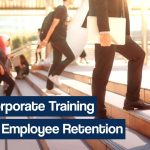Top Workplace Trends to Watch in 2025 in Malaysia

Top Workplace Trends to Watch in 2025 in Malaysia: A New Era of Work Begins
It was a rainy morning in Kuala Lumpur, and as I sipped my coffee while glancing at the city’s skyline, something became very clear: the world of work is evolving faster than ever. From remote work becoming the norm to the rise of AI-powered tools, we’re living in a time where the traditional 9-to-5 is fading into the background. In Malaysia, the workplace of 2025 is expected to look quite different, and we need to prepare for what’s ahead.
As businesses and employees adapt to these rapid changes, here are the top workplace trends that will shape the future of work in Malaysia.
1. Remote Work as a Standard, Not a Perk
During the pandemic, many companies in Malaysia were forced to embrace remote work, but what started as a necessity is now becoming a permanent fixture. According to a report by The Star, nearly 80% of Malaysian companies are now offering hybrid work models in 2024, and this trend is only expected to grow in 2025. With advancements in cloud technology and better internet infrastructure, working from home or anywhere else is easier than ever.
This shift towards remote work means companies will need to invest more in digital tools, cybersecurity, and employee wellness programs to ensure that remote teams remain connected and productive. On the flip side, employees will need to learn how to navigate the challenges of managing work-life boundaries.
The key takeaway: In 2025, flexible work arrangements will no longer be seen as a special benefit but a standard operating procedure for many industries.
2. The Rise of AI and Automation in Everyday Tasks
Artificial Intelligence is no longer just a futuristic concept. It’s here, and it’s transforming how businesses operate in Malaysia. In fact, according to Bernama, Malaysia’s digital economy is set to contribute 25.5% to the GDP by 2025, largely driven by AI and automation. From HR departments using AI to streamline recruitment to manufacturing companies employing automation for production efficiency, the workforce will need to adapt quickly.
However, this doesn’t mean robots are here to replace us. Instead, AI will handle repetitive tasks, allowing employees to focus on more strategic and creative work. The demand for tech-savvy professionals who can work alongside AI will increase, leading to a boom in upskilling initiatives.
The key takeaway: AI will be a core part of daily work life in 2025, and employees who invest in upskilling will thrive in this new environment.
3. A Focus on Employee Well-Being and Mental Health
In recent years, there has been a growing awareness of mental health issues in Malaysia. As the pressures of work continue to mount, companies are realizing the importance of prioritizing their employees’ well-being. A study by JobStreet found that 9 out of 10 employees in Malaysia have experienced burnout, leading to decreased productivity and high turnover rates.
In response, companies are adopting wellness programs, mental health support, and flexible working hours to help their employees achieve a better work-life balance. In 2025, mental health will no longer be a taboo subject in Malaysian workplaces. Companies that prioritize their employees’ well-being will stand out in the talent war.
The key takeaway: Businesses will need to embed well-being programs into their organizational culture, or risk losing talent to those who do.
4. Diversity and Inclusion Take Center Stage
As globalization continues to bridge gaps between different cultures, the need for diversity and inclusion (D&I) in the workplace is becoming more important. In Malaysia, with its multi-ethnic population, this trend is particularly significant. Companies are recognizing that diverse teams are more innovative and productive.
The Malaysian government has also started initiatives aimed at promoting inclusivity, such as increasing the participation of women and persons with disabilities in the workforce. A report from TalentCorp emphasized the need for companies to develop inclusive practices to retain top talent in a competitive job market.
The key takeaway: In 2025, businesses that embrace diversity and inclusivity will benefit from a wider pool of talent and innovative ideas.
5. Upskilling and Reskilling: Lifelong Learning is the New Norm
Gone are the days when learning stopped after formal education. In the fast-changing workplace of 2025, professionals in Malaysia will need to continuously upskill and reskill to remain relevant. Whether it’s learning how to manage AI tools, understanding data analytics, or mastering new communication platforms, the ability to quickly learn new skills will be a game-changer.
The World Economic Forum predicted that by 2025, 50% of employees worldwide will need reskilling. Malaysian companies are already recognizing this and investing in training programs to develop their workforce. Platforms like HRDF (Human Resources Development Fund) are helping to fund these efforts, encouraging lifelong learning.
The key takeaway: Employees who embrace learning will have a competitive advantage in the job market, while companies that invest in their staff’s growth will retain top talent.
6. Sustainability Becomes a Workplace Priority
Sustainability is no longer just a buzzword—it’s a necessity. As Malaysia works towards its Shared Prosperity Vision 2030, businesses are aligning their goals with sustainable practices. From reducing carbon footprints to implementing environmentally friendly office policies, sustainability will play a major role in shaping corporate strategies.
In 2025, we’ll see more Malaysian companies going green, not only for the planet but also because consumers and employees are demanding it. Businesses that are environmentally responsible will not only attract customers but also be more appealing to talent, especially among younger generations who prioritize sustainability.
The key takeaway: Sustainability will be a defining factor in the success of businesses in 2025, with both consumers and employees pushing for more green initiatives.
Conclusion: The Future of Work is Here
As the rain outside begins to slow down, I think about the bright future ahead for Malaysia’s workforce. The trends we’re seeing—remote work, AI, mental health, diversity, continuous learning, and sustainability—are all shaping a new era of work that’s more flexible, inclusive, and future-focused. The key to success in 2025 is not to resist these changes but to embrace them, upskill yourself, and prepare for a workplace that’s dynamic and constantly evolving.
Let’s get ready for the workplace of tomorrow—because it’s already here today.
Sources: The Star, Bernama, JobStreet, TalentCorp, World Economic Forum.




















